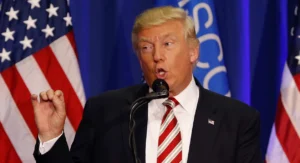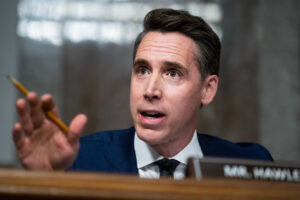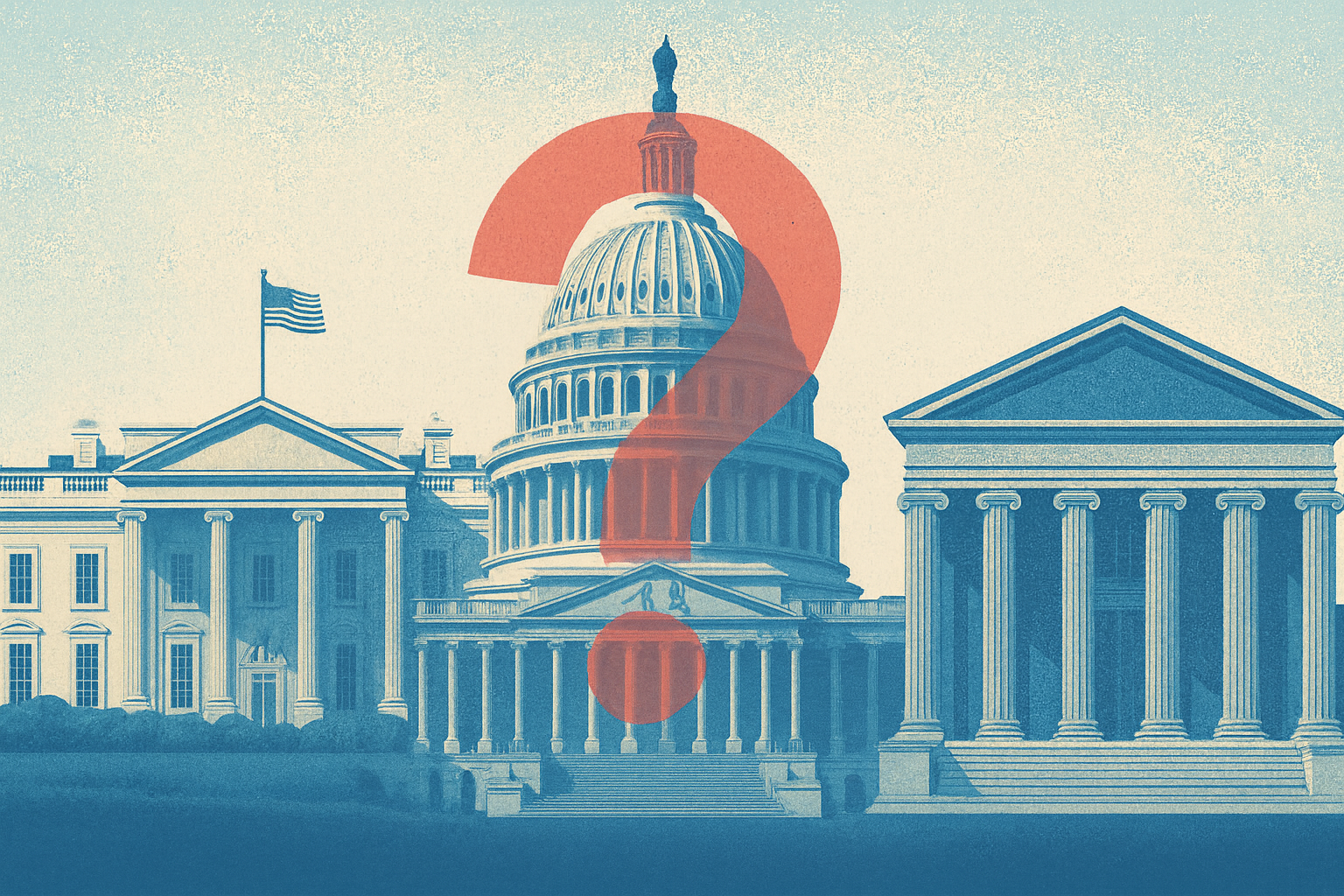The United States is in a race to achieve global dominance in artificial intelligence (AI). Whoever has the largest AI ecosystem will set global AI standards and reap broad economic and military benefits. Just like we won the space race, it is imperative that the United States and its allies win this race. . . . Build, Baby, Build. America’s AI Action Plan, July 2025
The explosion of generative AI has triggered a legal crisis that few saw coming and nobody seems equipped to fix. At the center is a deceptively simple question: Can companies train AI models on copyrighted material without permission?
The stakes are enormous. This isn’t just about Big Tech and copyright holders duking it out. It’s about the future of the creative economy, the limits of fair use, and whether the U.S. legal system can adapt fast enough to regulate technologies that don’t wait for case law to catch up.
So far, there’s no clear direction. The White House is all-in on open access. Some in Congress want to prosecute. And the federal courts? Let’s just say consensus is not the word that comes to mind.
The White House: “You Just Can’t Pay for Everything”
On July 23, 2025, President Trump released his administration’s AI Action Plan, a blueprint for building a domestic AI ecosystem strong enough to beat China in the AI race. And in classic Trump fashion, he skipped the legalese and went straight to the point:
the AI race. And in classic Trump fashion, he skipped the legalese and went straight to the point:
“You can’t be expected to have a successful AI program when every single article, book, or anything else that you’ve read or studied, you’re supposed to pay for. … When a person reads a book or an article, you’ve gained great knowledge. That does not mean that you’re violating copyright laws or have to make deals with every content provider. … You cannot expect to every single time say, ‘Oh, let’s pay this one that much. Let’s pay this one.’ Just doesn’t work that way.”
Trump didn’t say “fair use,” but he didn’t need to. The message was clear: licensing everything is a non-starter, and AI should be free to learn from copyrighted works without paying for the privilege. Whether that’s a legal position or just a policy stance is beside the point. Either way, the administration is betting that a permissive approach is the price of staying ahead in the global AI race.
Congress: “The Largest IP Theft in American History”
On Capitol Hill, the mood is very different. Just one week earlier, on July 16, the Senate Judiciary Committee’s Subcommittee on Crime and Counterterrorism held a hearing titled Too Big to Prosecute? Examining the AI Industry’s Mass Ingestion of Copyrighted Works for AI Training.
held a hearing titled Too Big to Prosecute? Examining the AI Industry’s Mass Ingestion of Copyrighted Works for AI Training.
Senator Josh Hawley opened the hearing with a blunt accusation:
“Today’s hearing is about the largest intellectual property theft in American history … AI companies are training their models on stolen material. Period. We’re talking about piracy. We’re talking about theft. This is not just aggressive business tactics. This is criminal conduct.”
He went on to ridicule national security arguments as thin cover for profiteering:
“Every time they say things like ‘We can’t let China beat us.’ Let me just translate that for you. What they’re really saying is ‘Give us truckloads of cash and let us steal everything from you and make billions of dollars on it.’”
While Congress remains divided on the issue, Hawley’s remarks reflect just how far the rhetoric has escalated – and how close it is coming to framing AI training not as a policy problem, but as a prosecutable offense. Hawley has teamed up with Senator Blumenthal on a bipartisan bill that would prohibit AI companies from training on copyrighted works without permission.
The Courts: No Consensus, No Clarity
Meanwhile, the federal courts have offered no consistent theory of their own. As I’ve noted before, two judges in the Northern District of California – William Alsup and Vince Chhabria – have reached diametrically opposed conclusions on both AI training and the legality of acquiring training data from pirate sites.
In Bartz v. Anthropic Judge Alsup ruled that using copyrighted works to train LLMs is “highly transformative” and likely protected by fair use. At the same time, he found that downloading copyrighted books from pirate sites for this purpose is plainly unlawful. Consequently, Anthropic now faces potentially massive class action liability.
In Kadrey v. Meta Judge Chhabria more or less flipped that script. He expressed serious doubt that AI training is fair use – but still ruled in Meta’s favor. Why? Because the plaintiffs (a group of well-known authors) failed to show that Meta’s use harmed the market for their books. And on the question of downloading books from pirate sites? Chhabria said it might be fair use after all – at least in this context.
So not only do two judges disagree on whether training is lawful – they also can’t agree on whether using pirated copies is legal.
Conclusion: Law Unmade
The legal framework surrounding AI training is collapsing under the weight of its contradictions. The executive branch supports open access. Congress calls it theft. The courts can’t agree on what the law is, let alone how it should evolve. And this isn’t theoretical: almost 50 copyright cases involving generative AI are now pending in U.S. courts, and the legality or illegality of using copyrighted content to train models could have a profound effect on the entire industry.
In this vacuum, AI companies continue to train their models. Copyright owners continue to sue. Policymakers continue to hedge. And the public is left wondering whether copyright law is still capable of responding to technological change.
This uncertainty is more than academic. It chills investment, clouds business models, and puts AI companies in the impossible position of defending their work without clear legal boundaries. Without guidance from Congress or a unifying appellate decision, generative AI will remain stuck in legal limbo – and in that limbo, the line between innovation and infringement will only grow harder to draw.
